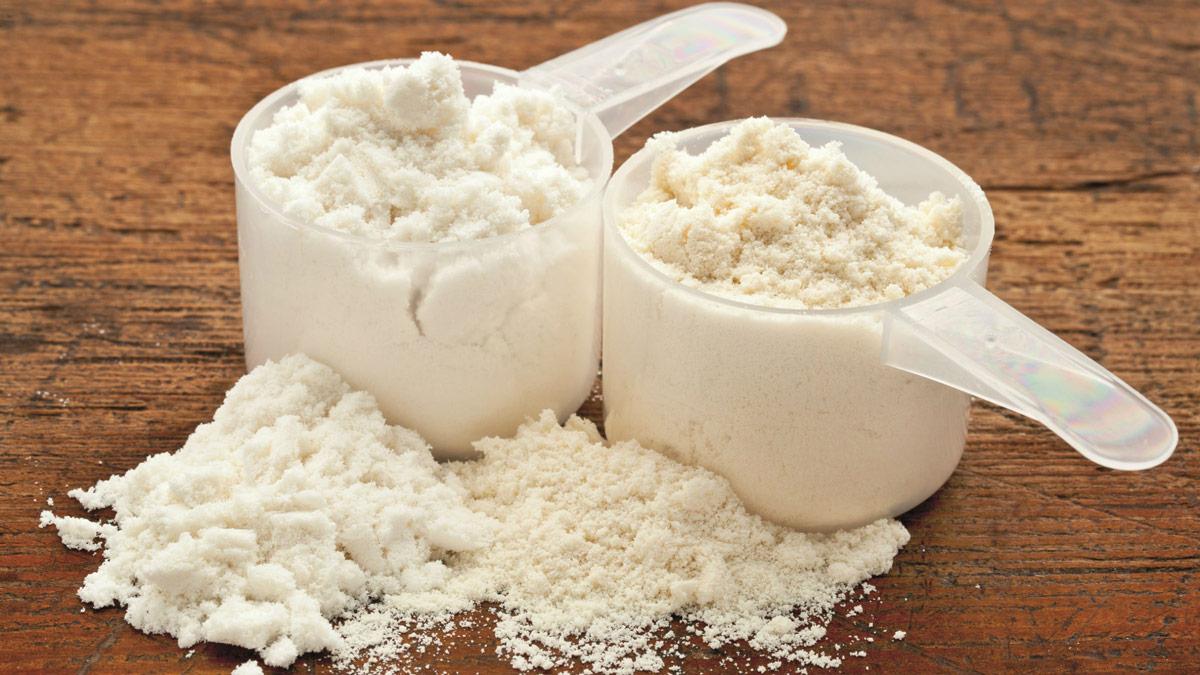Patrocinado
Everything You Need to Know About Milk Protein Concentrate: Benefits, Uses, and Production

Milk Protein Concentrate (MPC) has emerged as a crucial ingredient in the food industry, revolutionizing the way we approach protein supplementation and food formulation. This concentrated form of milk proteins has gained significant attention for its versatility and nutritional benefits, making it a valuable component in various food applications.
What is Milk Protein Concentrate?
Milk Protein Concentrate is a dairy ingredient produced through the ultrafiltration of skim milk, resulting in a powder that contains both casein and whey proteins in the same ratio as found in natural milk. The concentration of protein in MPC can vary from 40% to 90%, with higher protein concentrations achieved through additional processing steps. This concentrated form maintains the original proportions of calcium and other minerals naturally present in milk, making it a nutritionally superior option compared to other protein sources.
Production Process and Manufacturing
The production of Milk protein concentrate involves several sophisticated steps that ensure the highest quality and protein concentration. The process begins with fresh skim milk that undergoes ultrafiltration, where a selective membrane separates the protein and minerals from lactose and other water-soluble compounds. This filtered material is then spray-dried to create a powder form that can be easily stored and transported. Advanced manufacturing techniques allow producers to achieve different protein concentrations, catering to various industrial needs and applications.
Nutritional Composition and Benefits
MPC is renowned for its exceptional nutritional profile. It contains all essential amino acids and maintains a high biological value, making it an excellent protein source for human nutrition. The protein content typically ranges from 40% to 90%, depending on the specific product grade. Additionally, MPC is rich in calcium and other minerals naturally present in milk, contributing to its nutritional superiority.
The benefits of MPC include:
- Complete protein profile with all essential amino acids
- Excellent calcium source
- High digestibility and bioavailability
- Natural mineral content
- Low lactose levels in high-protein variants
Applications in Food Industry
The versatility of Milk Protein Concentrate has made it an invaluable ingredient in various food applications. Its functional properties allow it to improve texture, enhance nutritional value, and provide stability in different food products.
Dairy Products:
MPC is extensively used in yogurt, cheese, and other dairy products to increase protein content and improve texture. It helps in achieving desired consistency and mouthfeel while maintaining authentic dairy flavor.
Sports Nutrition:
The sports nutrition industry heavily relies on MPC for protein supplements and ready-to-drink beverages. Its complete amino acid profile and easy digestibility make it perfect for post-workout recovery and muscle building.
Bakery Products:
In baking applications, MPC contributes to improved texture and shelf life while increasing the protein content of breads, cookies, and other baked goods.
Infant Formula:
MPC is a crucial ingredient in infant formula manufacturing, helping to create products that closely mirror the protein composition of human milk.
Functional Properties and Benefits
The functional properties of Milk Protein Concentrate make it a preferred choice in food formulation:
Water Binding:
MPC demonstrates excellent water-binding capabilities, which helps improve product texture and stability. This property is particularly valuable in processed meat products and dairy applications.
Heat Stability:
Many MPC variants offer good heat stability, making them suitable for UHT processing and retorted products. This characteristic is essential for shelf-stable beverages and processed foods.
Emulsification:
The proteins in MPC provide excellent emulsification properties, helping to stabilize fat-in-water emulsions in various food systems.
Quality Considerations and Storage
Maintaining the quality of Milk Protein Concentrate requires proper storage conditions and handling:
Storage Requirements:
- Cool, dry environment
- Protection from direct sunlight
- Proper packaging to prevent moisture absorption
- Temperature control below 25°C (77°F)
Quality Indicators:
- Solubility index
- Moisture content
- Microbiological standards
- Protein content verification
Market Trends and Future Prospects
The global market for Milk Protein Concentrate continues to grow, driven by increasing demand for protein-rich foods and beverages. The rising popularity of clean-label products and natural ingredients has further boosted MPC's market position. Future growth is expected in emerging markets where protein fortification is gaining importance in addressing nutritional needs.
Key market trends include:
- Growing demand in sports nutrition
- Increased use in clinical nutrition products
- Rising popularity in functional foods
- Innovation in processing technologies
Get this Report in Japanese Language
Get this Reports in Korean Language
About Author:
Priya Pandey is a dynamic and passionate editor with over three years of expertise in content editing and proofreading. Holding a bachelor's degree in biotechnology, Priya has a knack for making the content engaging. Her diverse portfolio includes editing documents across different industries, including food and beverages, information and technology, healthcare, chemical and materials, etc. Priya's meticulous attention to detail and commitment to excellence make her an invaluable asset in the world of content creation and refinement.
(LinkedIn- https://www.linkedin.com/in/priya-pandey-8417a8173/)
Categorias
Leia Mais
2020 год оказался настоящим прорывом в мире азартных игр, и одной из самых ярких звезд на этом небосклоне стала игра 15 Dragon Pearls, которая завоевала сердца игроков в казино по всему миру. Этот видеослот не только умело сочетает в себе захватывающий игровой процесс с яркой графикой и завораживающими анимациями, но и предлагает уникальные возможности для выигрыша, которые делают его особенно...

In an era where financial transactions seamlessly transcend traditional boundaries, the demand for innovative and user-friendly mobile banking applications is soaring. As the financial technology landscape evolves, businesses and entrepreneurs find themselves at the crossroads of opportunity and investment, contemplating the pivotal question: How much does it cost to build a mobile...



